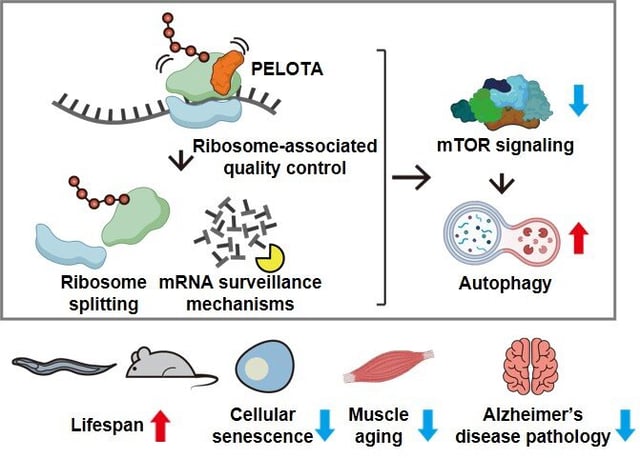Overview
- Overexpressing PELOTA in C. elegans extended lifespan, indicating that clearing defective mRNA supports longevity.
- PELOTA loss hyperactivated mTOR and suppressed autophagy; increasing PELOTA did the reverse, inhibiting mTOR and inducing autophagy.
- The mechanism was conserved in mice and human-relevant data, with Pelota deficiency associated with muscle aging and Alzheimer’s‑related features.
- A KAIST-led team with collaborators at Yonsei University and KRIBB reported the findings in PNAS in early August 2025 (DOI: 10.1073/pnas.2505217122).
- Researchers say the pathway could guide therapies for aging and neurodegenerative disease, though the results remain preclinical.

